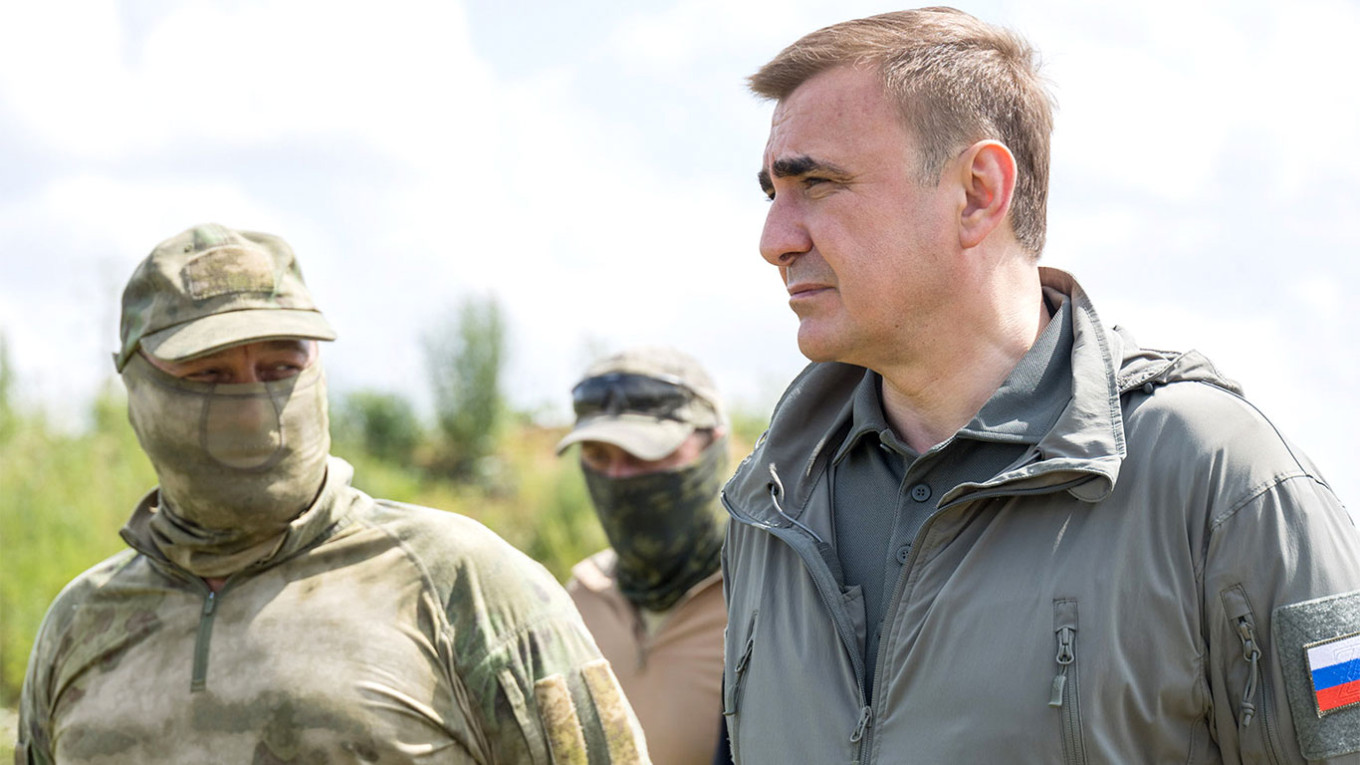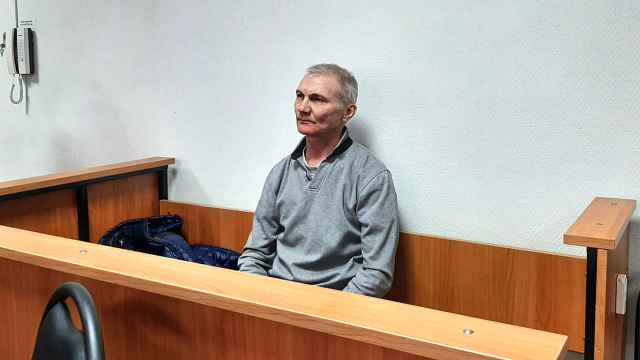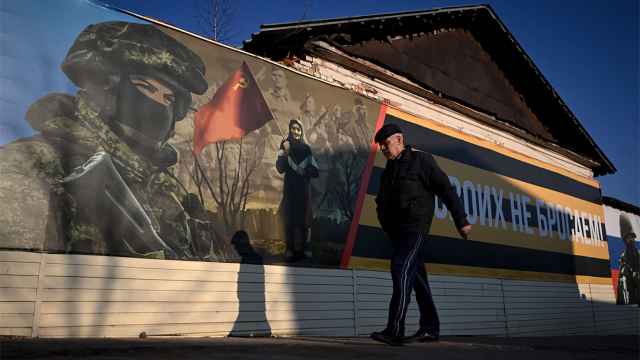Alexei Dyumin, a former bodyguard of Russian President Vladimir Putin and now governor of the Tula region, has been the subject of much discussion since the short-lived mutiny led by the Wagner mercenary boss Yevgeny Prigozhin last month. Although Belarusian President Alexander Lukashenko got the official credit for persuading Prigozhin to stand down, many social media channels and anonymous sources claimed it was in fact Dyumin who had played the decisive role in the negotiations and, as a result, strengthened his already special place in the president’s inner circle.
Some observers once again began to predict a glittering political future for Dyumin, up to and including the role of Putin’s successor. In reality, however, it will be very difficult for Dyumin to advance his career.
It was widely reported that the Tula governor, who has known Prigozhin for years, got him to the negotiating table by urging him to “bring his men to heel.” Dyumin’s authority to lead the subsequent talks was interpreted as him having the trust of the president, while Prigozhin’s ultimate defeat was seen as evidence of Dyumin’s success and imminent promotion. The Kremlin has declined to comment on Dyumin’s role, and the governor himself has remained silent. All his spokesperson has said is that being a mediator in this way would “not be within his remit” as the head of a Russian region.
The most popular theory regarding Dyumin is that he is destined for the post of defense minister. It’s true that this is an appointment that has long been lobbied for by Dyumin’s former Federal Protective Service (FSO) boss Viktor Zolotov, now the head of Russia’s National Guard. It’s no coincidence that figures close to Zolotov like Prigozhin and Chechen leader Ramzan Kadyrov have been attacking Defense Minister Sergei Shoigu for over a year.
Securing Shoigu’s resignation is no mean feat, however, and it was also important to make sure it didn’t happen before the outcome of the Ukrainian counteroffensive was clear. That way, if Russia’s Armed Forces had suffered a serious defeat, it could be blamed on Shoigu, not the new minister. If, on the other hand, they managed to resist the Ukrainian attack, then thanks could be expressed to Shoigu at the same time as a demand for fresh blood to lead new military advances.
By demanding Shoigu’s resignation, the Wagner rebels have actually halted the campaign to install Dyumin as defense minister. It’s well known that Putin doesn’t like taking decisions under pressure, so Shoigu is now effectively immune from removal as a result of the uprising. He is even doubly immune, since Putin said publicly that he has no complaints about the performance of the Russian military.
Prigozhin’s insurrection was therefore yet another blow for Dyumin, who is eternally tipped for a position in the federal government, yet is still waiting. When he was made governor of the Tula region seven years ago, several of his FSO colleagues received similar positions: Dmitry Mironov was sent to head the Yaroslavl region, and Yevgeny Zinichev was made governor of the Kaliningrad region. Back then, the assumption was that Putin was testing these trusted men as governors before handing them top jobs in the government or security agencies.
None of these ex-bodyguards had the experience of single-handedly running a major organization. Before their transfer to the regions, they had only been deputies: Dyumin was a deputy defense minister, while Mironov served as a deputy interior minister. And in those deputy positions, they were the president’s eyes and ears in their respective ministries, charged with watching over influential groups and influential people. This did not require publicity, serious professionalism, or a full command of the brief.
Perhaps inevitably, both Dyumin and Mironov had complicated relationships with the ministers they served under (Shoigu and Vladimir Kolokoltsev). There is considerable evidence to suggest that Shoigu and Kolokoltsev asked Putin to rid them of these irritating deputies, and that in 2016, the president agreed and sent Dyumin and Mironov to the regions.
Once they were governors, rumors regularly circulated that they would soon be leaving for top jobs in Moscow. Yet that only came true for Zinichev, who left his governorship within a matter of months: first to be deputy head of the Federal Security Service (FSB), and then to head the Emergencies Ministry. Mironov served out his governorship, but was not made a minister, and is currently a presidential aide.
Dyumin got closest to a federal position in 2021, when his first term as governor came to an end. It was predicted he could be appointed FSB head or minister of trade and industry. His replacement — a former State Duma deputy from the ruling United Russia party, Nadezhda Shkolkina — had already arrived in Tula to prepare for the handover when the plan changed at the last moment and Dyumin was obliged to stand for another term as governor.
The career dead end in which Dyumin now finds himself can be explained by the logic of Russia’s power vertical. It’s much harder to become a minister after a governorship than it is to be promoted from the position of deputy minister. Following their appointment to the regions, former security service insiders like Mironov and Dyumin became outsiders to the ministries they aspired to lead. It’s much easier to obstruct someone from outside than it is to block them from within.
In addition, for the FSB, Dyumin represents the interests of a competing security agency: the FSO. Denis Manturov remained trade and industry minister (a position he combines with that of deputy prime minister) in 2021 because he is loyal to Sergei Chemezov, head of the state defense conglomerate Rostec, and the influence wielded by Chemezov and the FSB was sufficient to block Dyumin’s advancement.
Putin’s unwillingness to put pressure on powerful groups in his circle reduces Dyumin’s chances of landing a federal-level position. And since new names emerge regularly, he has likely also dropped down the ranking of the president’s most trusted individuals during his years as Tula region governor.
Formal indicators suggest that Prime Minister Mikhail Mishustin is now highly trusted by Putin. Deputy Prime Minister Marat Khusnullin is also up there. Khusnullin has always been willing to take on challenging tasks that are important to the president, such as rebuilding infrastructure in Russian-held areas of Ukraine.
Kremlin deputy chief of staff Sergei Kiriyenko, who is responsible for overseeing social issues in Russia-controlled eastern Ukraine, is another favorite. Kiriyenko has made education — an area that matters greatly to Putin—another pet project, and he and his team are currently supervising the development of a higher education course in ideology called the “Foundations of Russian Statehood.”
Right now, Putin seems particularly drawn to projects developed by managers without any obvious political ambition. These are people like Khusnullin and Kiriyenko who, in turn, are not shy about leveraging their contact with the president. But Dyumin has been a different sort of politician for many years now, and time is against Putin’s former golden boy. His governorship has gone from a temporary stepping stone to a career glass ceiling.
This article was originally published by The Carnegie Endowment for International Peace.
A Message from The Moscow Times:
Dear readers,
We are facing unprecedented challenges. Russia's Prosecutor General's Office has designated The Moscow Times as an "undesirable" organization, criminalizing our work and putting our staff at risk of prosecution. This follows our earlier unjust labeling as a "foreign agent."
These actions are direct attempts to silence independent journalism in Russia. The authorities claim our work "discredits the decisions of the Russian leadership." We see things differently: we strive to provide accurate, unbiased reporting on Russia.
We, the journalists of The Moscow Times, refuse to be silenced. But to continue our work, we need your help.
Your support, no matter how small, makes a world of difference. If you can, please support us monthly starting from just $2. It's quick to set up, and every contribution makes a significant impact.
By supporting The Moscow Times, you're defending open, independent journalism in the face of repression. Thank you for standing with us.
Remind me later.








